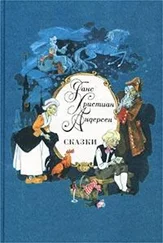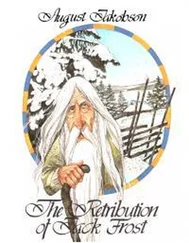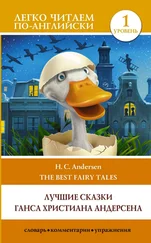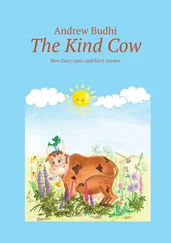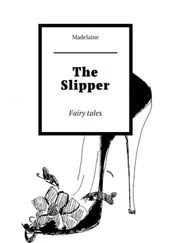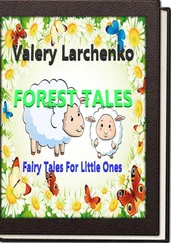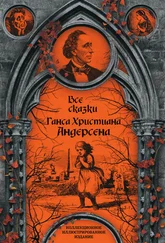Ганс Андерсен - Fairy Tales
Здесь есть возможность читать онлайн «Ганс Андерсен - Fairy Tales» весь текст электронной книги совершенно бесплатно (целиком полную версию без сокращений). В некоторых случаях можно слушать аудио, скачать через торрент в формате fb2 и присутствует краткое содержание. Жанр: Старинная литература, на английском языке. Описание произведения, (предисловие) а так же отзывы посетителей доступны на портале библиотеки ЛибКат.
- Название:Fairy Tales
- Автор:
- Жанр:
- Год:неизвестен
- ISBN:нет данных
- Рейтинг книги:4 / 5. Голосов: 1
-
Избранное:Добавить в избранное
- Отзывы:
-
Ваша оценка:
- 80
- 1
- 2
- 3
- 4
- 5
Fairy Tales: краткое содержание, описание и аннотация
Предлагаем к чтению аннотацию, описание, краткое содержание или предисловие (зависит от того, что написал сам автор книги «Fairy Tales»). Если вы не нашли необходимую информацию о книге — напишите в комментариях, мы постараемся отыскать её.
Fairy Tales — читать онлайн бесплатно полную книгу (весь текст) целиком
Ниже представлен текст книги, разбитый по страницам. Система сохранения места последней прочитанной страницы, позволяет с удобством читать онлайн бесплатно книгу «Fairy Tales», без необходимости каждый раз заново искать на чём Вы остановились. Поставьте закладку, и сможете в любой момент перейти на страницу, на которой закончили чтение.
Интервал:
Закладка:
And the beautiful, gorgeous blue flower, which had been picked in the vegetable garden, was taken out of the living room, where it didn’t belong. 1Then the master and mistress apologized to the princess and told her that the flower was just a kitchen herb that the gardener had wanted to display, but he had been sternly admonished about placing it on display.
“That’s a shame and not fair,” said the princess. “He has opened our eyes to a magnificent flower that we had not paid any attention to. He has shown us beauty where we did not think to seek it. As long as the artichokes are blooming, the royal gardener will bring one to my parlor every day.” And that’s what happened.
So then the master and mistress told the gardener that he could bring them a fresh artichoke flower again. “It is pretty after all,” they said, “quite remarkable!” And the gardener was praised. “Larsen likes that,” they said. “He’s a spoiled child!”
In the autumn there was a terrible storm. It started at night, and became so powerful that many big trees at the edge of the forest were torn up by the roots, much to the distress of the master and mistress. A great distress for them, but to the joy of the gardener, the two big trees with all the bird nests blew over. You could hear rooks and crows screaming at the height of the storm. People at the manor said that they flapped their wings against the windows.
“Well, now you’re happy, Larsen,” said the master and mistress. “The storm has knocked down the trees, and the birds have fled to the forest. Now nothing’s left from the old days here. Every sign and every allusion are gone! It’s very sad for us.”
The gardener didn’t say anything, but he thought about what he had long thought about—how to utilize the splendid sunny spot he didn’t have access to before. It would become the ornament of the garden, and the joy of his master and mistress.
The big fallen trees had crushed and completely destroyed the ancient box hedges, with their topiary. Here the gardener planted a thicket of growth—native plants from the meadows and forest. He planted with rich abundance what no other gardeners had thought belonged in a gentry’s garden, into the type of soil the plants needed and with the amount of shade and sun required by each type. He took care of them with love, and they grew splendidly.
The juniper bushes from the heaths of Jutland grew in form and color like the cypress of Italy. The shiny prickly holly, evergreen in winter cold or summer sun, was a delight to see. In front of them grew ferns of many different kinds. Some looked like they were children of the palm tree, and others as if they were parents of the delicate lovely vegetation we call maiden-hair. Here too was the despised burdock that is so lovely in its freshness that it can appear in bouquets. The dock stood on high ground, but lower, where it was damper, grew the common dock, also a despised plant, but with its height and huge leaves still so artistically lovely. Transplanted from the meadow grew the waist-high mullein like a magnificent many-armed candelabra with flower next to flower. There were woodruff, primroses, and forest lily of the valley, the white Calla, and the delicate three-leafed wood sorrel. It was beautiful to see.
In the front small pear trees from France grew in rows tied to wire cord. They received sun and good care and soon produced big, juicy fruit as in the land they came from.
Instead of the old leafless trees, a tall flagpole was installed, where the Danish flag flew and close to that another pole where in the summer and autumn the hop vines twisted with their fragrant cones of flowers, but where in winter an oat sheaf was hung, according to an old custom, so that the birds of the sky should have food in the merry time of Christmas.
“Larsen is getting sentimental in his old age,” said the master and mistress, “but he is loyal and attached to us.”
At the New Year there was a picture of the old estate in one of the capital’s illustrated magazines. You could see the flagpole and the oat-sheaf for the birds at Christmas time, and it was stressed what a good idea it was that an old custom was upheld and honored. So appropriate for the old estate!
“Everything that that Larsen does,” said the master and mistress, “is heralded by drums! He’s a lucky man! We almost have to be proud that we have him!”
But they were not at all proud of that. They felt that they were the master and mistress, and they could let Larsen go anytime, but they didn’t do that. They were good people, and there are many good people of their type, and that’s good for many a Larsen.
Well, that’s the story of the gardener and the gentry, and now you can think about it.
NOTE
1. Andersen evidently forgot that the flower has been given to the princess and is no longer in the living room.
THE FLYING TRUNK
ONCE UPON A TIME there was a merchant who was so rich that he could pave the entire street and almost another little alley with silver coins. But he didn’t do that. He knew of other ways to use his money, and if he paid out a penny, he got a dollar back. That’s the kind of merchant he was—and then he died.
His son got all this money, and he lived merrily, went to parties every night, made kites from his dollar bills, and skipped stones on the water with gold coins instead of pebbles. That makes money go, and go it did. Finally he only had four coins left and no other clothes than a pair of slippers and an old robe. Now none of his friends cared about him anymore since they couldn’t walk down the street together, but one of them, who was kind, sent him an old trunk and advised, “pack it in!” That was all well and good, but he had nothing to pack so he sat in the trunk himself.
It was a strange trunk. As soon as you pressed on the lock, the trunk could fly. And that’s what it did. Whee! It flew with him up the chimney and high up over the clouds, further and further away. The bottom kept groaning, and he was afraid that it would fall to pieces, and then he would have done a nice somersault, heaven knows! Soon he came to the land of the Turks. He hid the trunk in the forest under some wilted leaves and walked into town. He could do that safely because all the Turks walked around like him in robes and slippers. Then he met a wet nurse with a little child. “Listen here, you Turkananny,” he said, “what kind of castle is that here close to town? The windows are so high up.”
“The king’s daughter lives there,” she said. “It’s been prophesied that she will be unlucky in love, and therefore no one can visit her unless the king and queen are there.”
“Thanks,” said the merchant’s son, and then he went back into the forest, sat in his trunk, flew up on the roof, and crept through the window to the princess.
She was lying on the sofa sleeping. She was so beautiful that the merchant’s son had to kiss her. She woke up and was quite alarmed, but he said he was the Turkish God, who had come down through the sky to her, and she liked that.
Then they sat side by side, and he told stories about her eyes: they were the most lovely, dark oceans, and thoughts were swimming there like mermaids. Then he talked about her forehead: it was a snow-topped mountain with the most magnificent rooms and pictures, and he told her about the stork that brings the sweet little babies.
They were certainly some wonderful stories! Then he proposed to the princess, and she said yes at once!
“But you have to come on Saturday,” she said. “The king and queen are coming here for tea then. They’ll be very proud that I’m going to marry the Turkish God, but listen, be sure you can tell a really lovely fairy tale because they particularly like them. My mother likes them to be elegant and moralistic, and my father likes funny ones so he can laugh.”
Читать дальшеИнтервал:
Закладка:
Похожие книги на «Fairy Tales»
Представляем Вашему вниманию похожие книги на «Fairy Tales» списком для выбора. Мы отобрали схожую по названию и смыслу литературу в надежде предоставить читателям больше вариантов отыскать новые, интересные, ещё непрочитанные произведения.
Обсуждение, отзывы о книге «Fairy Tales» и просто собственные мнения читателей. Оставьте ваши комментарии, напишите, что Вы думаете о произведении, его смысле или главных героях. Укажите что конкретно понравилось, а что нет, и почему Вы так считаете.

![Ганс Андерсен - Ганс Чурбан[другой перевод]](/books/95480/gans-andersen-gans-churban-drugoj-perevod-thumb.webp)
